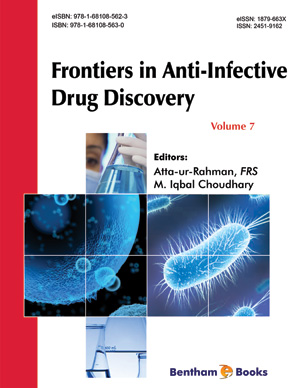Abstract
Aptamers are single-stranded DNA or RNA molecules, which can bind their targets with high affinity and specificity. SELEX (Systematic Evolution of Ligands by Exponential Enrichment) is the technology that allows to select aptamers from a random oligonucleotide library. Binding properties of aptamers are comparable to those of antibodies. But, unlike antibodies, aptamer production is a more rapid and less expensive process. One remarkable application is aptamer-based biosensors for specific and sensitive detection of bacterial toxins. In addition, a few aptamers have been shown to inhibit pathogens by blocking the activity of virulence factors. The chapter mainly covers aptamers that target virulence factors, rather than pathogen cells. First, general methodology for selection of aptamers is described. Then, aptamers developed against toxins, protein virulence factors and quorum sensing molecules are reviewed. In addition, chemical modification strategies to improve drug potential of aptamers are addressed. Although aptamers are excellent antimicrobial drug candidates, there are only a few studies that describe functional cell-based assays and potential therapeutic use. In this chapter, analytical applications of aptamers, as well as limited studies on their antimicrobial effect are reviewed.
Keywords: Antimicrobial resistance, Antibacterial aptamers, Aptamers, In vitro selection, Modified aptamers, Multi-drug resistant pathogens, SELEX, Therapeutic aptamers, Virulence factors.






















